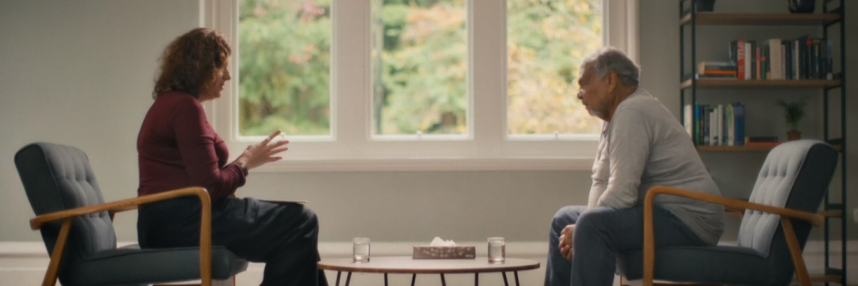DNA Family Secrets: the science behind the show
Photograph: BBC/Minnow Films
Now the BBC series has wrapped up, we revisit some genomics talking points and think about what may have been left out by the producers and why
DNA Family Secrets is a show on BBC Two that aims to “answer life-changing questions through the power of DNA”. Each episode features three stories of people who are having genomic testing, either to find out about their parentage or ancestry, or a medical condition or predisposition.
But what can we learn from the series, and what might the producers have left out or simplified that could be important for those considering a genomic test?
Not all tests are equal
It is important to understand that different types of genomic tests are regulated differently and work in different ways. Direct-to-consumer (DTC) genetic testing companies are not allowed to offer diagnostic tests for specific conditions, but they can offer ‘health and wellness’ tests, which look at gene variants that affect the chance of getting a disease.
In the programme, the participants looking for non-medical answers are guided by Leicester University’s Professor Turi King, who led the project to use DNA analysis to positively identify the remains of Richard III.
Most people who look for answers on DTC websites (for example, ancestry.com) won’t have access to a professional like Professor King for support, and it may be tempting to add on the health and wellness package when ordering a non-medical test. Results can be misleading, however, and should be interpreted with caution. Read more about the potential pitfalls of DTC tests here.
Supporting patients
In the programme’s first episode, we followed Charlie, a young mother whose father was recently diagnosed with Huntington disease. She wanted to be tested to see if she would develop the condition, and to find out if her baby son could inherit it too.
The producers showed the counselling that Charlie had in the run-up to her test, including reassurance that she could change her mind about finding out the result at any time.
While the support offered to the programme participants was dramatised, and may not reflect every person’s experience, genetic counselling is offered as part of the standard pathway for NHS patients having genomic testing for serious conditions such as Huntington disease, especially when testing takes place before any symptoms are present.
Charlie’s test revealed that she did not carry the gene variant that causes Huntington disease, and therefore could not have passed the variant on to her son.
Had she tested positive for the gene variant, though, it could have put the producers in a difficult position regarding her son’s genetic privacy: Charlie’s son would have had a 50% chance of developing the condition and is too young to consent to testing.
Gene therapy: as simple as it sounds?
The third episode introduced three-year-old Leo, who was losing his sight. He was having genetic testing to see if his vision loss was due to a variant in the RPE65 gene.
It was promising to see such a new treatment included in the programme (voretigene neparvovec was approved in 2019 and the first doses were administered in 2020). Some of the description around the treatment was simplified, however, and could potentially be misleading for viewers unfamiliar with gene therapy.
For example, the presenter said that “if doctors find Leo’s condition is genetic, then he would qualify for a brand-new form of gene therapy”, but there are many genes that can affect vision, and gene therapy can currently only target a very small number of them. Additionally, the procedure to administer the treatment was referred to as “sight-saving surgery”, which downplays the very specific nature of the gene therapy itself.
Overall, it is beneficial to get the wider public thinking about genomic tests, but programme producers do need to be careful that in making their content accessible, they aren’t offering false hope to those people and families affected by rare conditions.
Want to learn more? Our new video series addresses key points for health professionals to consider when discussing genomic testing with patients.
–


 BBC/Minnow Films
BBC/Minnow Films





